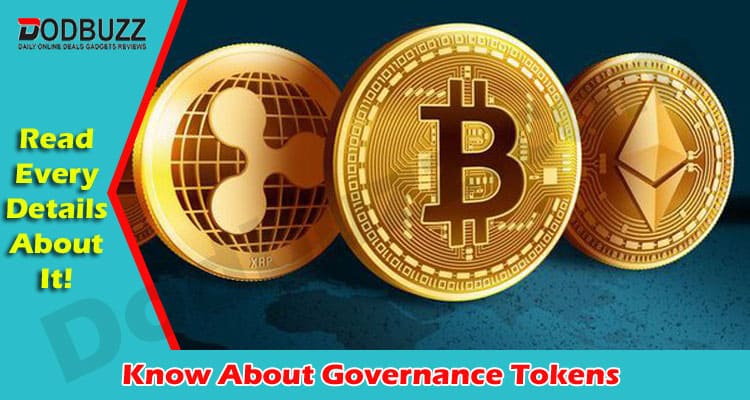Governance Tokens: Cryptocurrencies are digital or virtual tokens that use cryptography to secure their transactions and control the creation of new units. Approximately $112 billion is traded in cryptocurrency per day.
Governance tokens are a new kind of digital asset quickly gaining popularity. These tokens offer several benefits to their holders, including the ability to vote on important decisions affecting the network or project.
This article will help in understanding governance tokens and why they are becoming so popular. It will also explore the benefits that these tokens offer to their holders.
What are Governance Tokens?
Governance tokens give holders voting rights in the future direction. They allow token holders to have a say in how the project is run and make decisions on important matters such as fund allocation, protocol upgrades, and more.
Here’s how these tokens work:
1) Holders of the governance token are given voting rights in proportion to the number of tokens. For example, if a project has 100 million tokens and owns one per cent of them, you would have a million votes.
It ensures that more prominent stakeholders have more power than smaller ones and prevents whales from completely controlling the project’s direction.
2) The vote is usually done through a voting portal or smart contract that allows token holders to submit and cast their votes.
Votes are often binding, meaning that once the majority has been reached, the decision is implemented. However, there are also non-binding votes where the project team can choose to ignore the results if they deem it necessary.
3) The voting period is usually open for a certain amount of time, after which the votes are tallied, and the result is announced.
Token holders who do not vote during the voting period will often have their tokens “slashed” or burned as a penalty.
This system of governance is designed to be more decentralized and fair than traditional decision-making processes, which are often centralized and controlled by a small group of people.
4) Giving token holders a say in the project’s direction incentivizes them to hold onto the tokens and increases their long-term interest in their success. For example, a holder of a governance token is more likely to vote for a proposal to increase the token’s value.
This system also aligns the interests of the project team with those of the token holders and gives them a reason to work in the community’s best interest.
Benefits of Governance Tokens
Governance tokens are becoming increasingly popular as they offer several benefits over traditional forms of governance.
Some of the benefits include:
1) Decentralized Decision-making
Governance tokens allow for a more decentralized form of decision-making that few people do not control.
This decentralization allows for a fairer and more democratic process that gives everyone a say in the project’s direction.
For example, in a traditional company, the CEO and board of directors make crucial decisions. However, with a governance token, those decisions are made by the token holders.
This system is more decentralized and fairer than traditional decision-making processes, often centralized and controlled by a small group of people.
2) Increased Security
Governance tokens often come with increased security backed by the blockchain.
It means that votes cannot be tampered with and that the process. It can be a significant advantage, especially for businesses or organizations that require high levels of security.
Some of the unique security features include:
– immutability: Once a vote is cast, it cannot be changed
– transparency: All votes are publicly visible on the blockchain
– tamper-proof: It is impossible to tamper with votes or the voting process
3) More Democratic Processes
Decentralized governance can lead to more democratic processes as all stakeholders have a say in running the network. It leads to faster decision-making and more efficient use of resources.
For example, in the DeFi space, MakerDAO’s governance token holders vote on proposals to change the interest rates paid by borrowers.
Token holders can also vote to add new collateral types to the system or change other vital parameters. In a more traditional company, shareholders elect a board of directors who hire executive management.
4) Increased Transparency
The tokens can increase transparency as all stakeholders have access to the same information. It could help to reduce corruption and increase trust in the system.
For example, many projects publish their roadmap and development progress on a public blockchain in the cryptocurrency space.
It allows anyone to track their progress and hold them accountable. Decentralized governance could also help to increase transparency in voting processes.
Blockchain technology can be used to create a decentralized voting system that is transparent and secure.
Final Words
Understanding governance tokens give holders voting rights on the direction of a project. They offer benefits to both investors and the projects themselves, providing a way to align incentives and give users a say in the future of a project.







